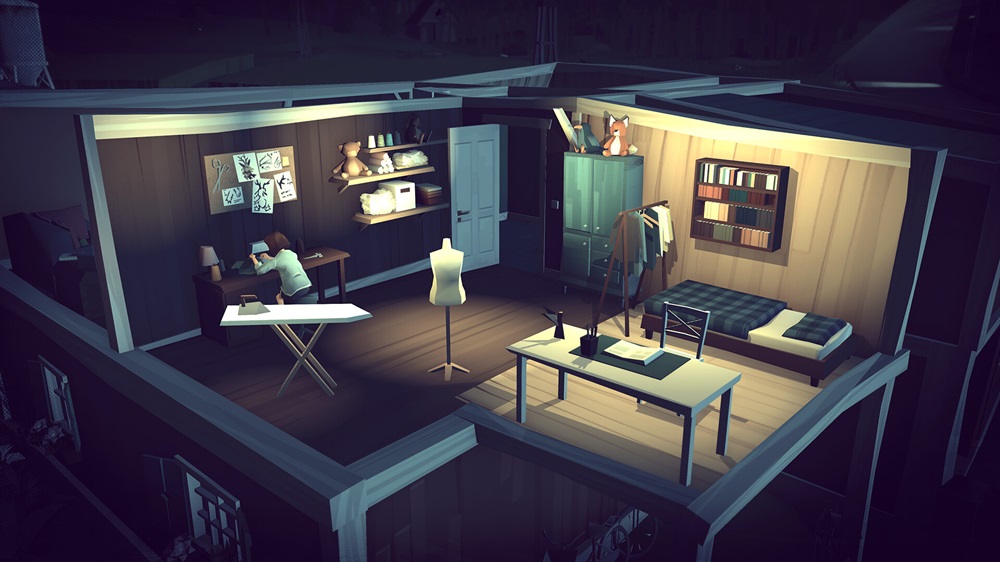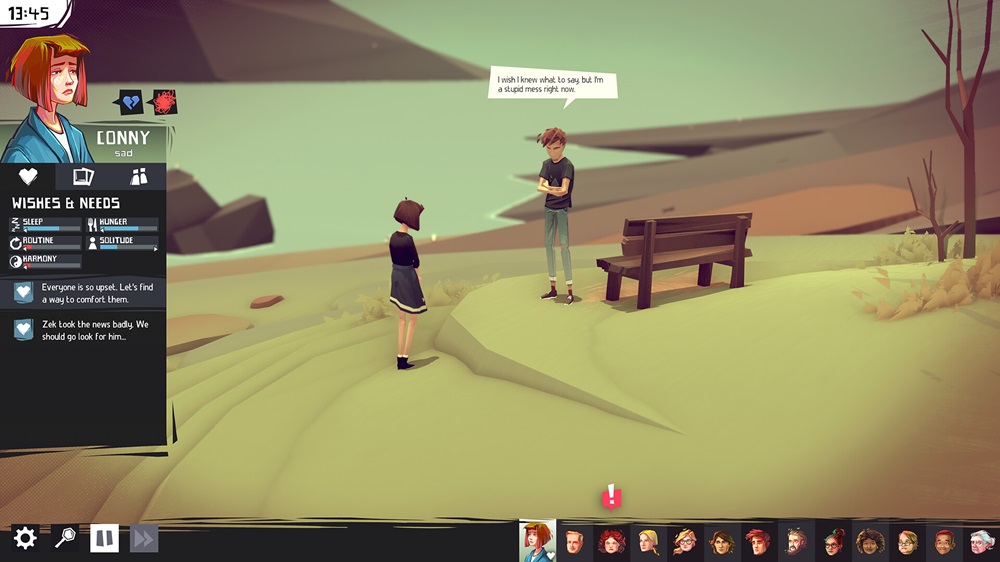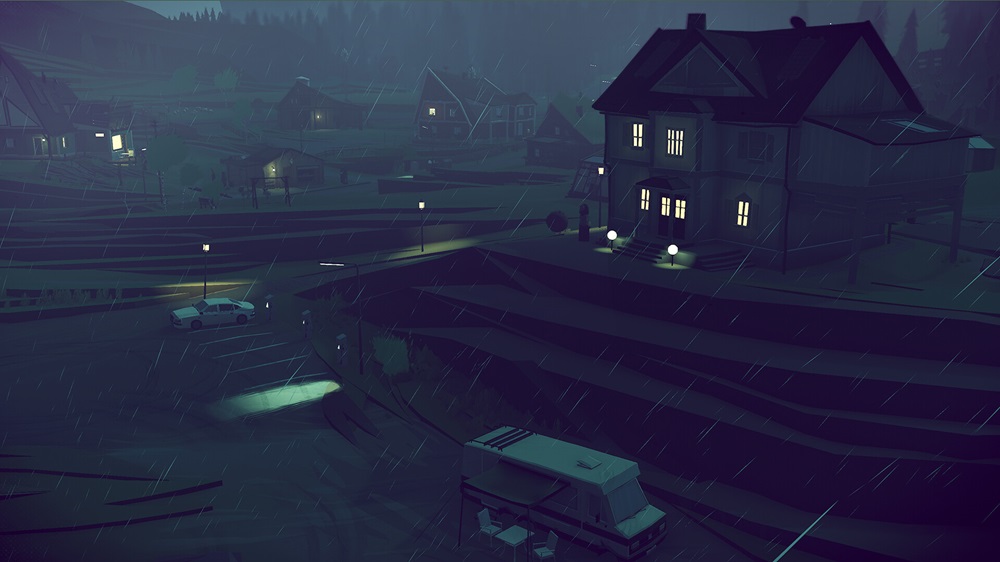Closer the Distance review
I remember scrolling social media and seeing an interview with Andrew Garfield where he talked about the loss of his mother, and specifically how grief is just all the love you can no longer show them. It was a beautiful way to look at something so tragic, and that outlook came to the forefront of my mind when playing Closer the Distance. It shows how the loss of one young woman affects everyone within a small community, and it does so with great delicacy. How love transcends loss, and how people learn to process the love they no longer get to express.
At the start of Closer the Distance, you witness how the news of Angie’s death hits her parents and her sister. Denial, confusion, sorrow, anger. All the hallmarks of pain rip through the family within minutes, and the impact then filters through to those she knew dearly throughout Yesterby, the village she used to live in. Watching from the outside looking in, you switch between all of these characters and get to spend time witnessing how they are all trying to make sense of the unfathomable tragedy of the loss they’re all experiencing.

The way in which you do switch between characters, interact with everyone, and make decisions is all done through Angie. At first, you choose what her sister Connie does in the first few hours and days of finding out you can communicate with one another. The hours of the day progress, and each person in Yesterby has certain goals they want to complete, although you can only act on those that you can communicate with. One of Conny’s first tasks is to go and talk to everyone to see how they are coping, such as Zek, someone that had strong feelings for Angie.
Each character also has needs, such as sleeping or eating, but there are also individual ones that are unique. As the days pass by, and more characters become interactable, you must choose the ways in which you can help, what tasks need completing, and who best to help, while also taking care of yourself. You’re responsible for helping everyone move on, but like reality, grief works differently depending on the person. It’s such a minefield, and such a delicate path we walk in the wake of a loss that knowing what to do or say not only impacts the individual, but the people around you.

You start to see these consequences play out. Galya is so desperate to help Angie’s parents that she can slowly begin to ignore her partner, which is something you have to think about. You aren’t going to be able to fix everything and everyone, something we all try to do in these situations, and that’s why its writing is so good. It mimics real life very well, in so many ways, and while I wouldn’t call Closer the Distance fun, it’s a fascinating game that relies on your own empathy to steer the ship.
As you choose tasks to complete, you can switch between other characters and watch how they are all dealing with Angie’s loss. Even those you aren’t controlling can have something important going on, and the freedom to switch fluidly and watch everyone offers an authentic appeal where you feel like this town of Yesterby is alive. If you wanted to you could spend days doing nothing and just watching everyone going about their days, but making decisions gives you some control over how everyone learns to accept the death and try and move forward.

You’ll spend a lot of time in Closer the Distance listening to conversations and observing. At times there’s little gamey sections, but these were the moments I adored the most. It helps the writing is so carefully put together. You’ll smile and then realise why I everyone was upset in the first place. You’ll get lost in a job then remember who you’re helping and that they’ve just lost their daughter. Grief runs through everything, but being an ear to those who are struggling and helping them find a place for the love they’re holding onto is all part of its bittersweet charm.
Closer the Distance is a wonderful life-sim. It feels like The Sims with a heart, and every character brings something to the story. It deals with grief in such a raw and honest way, never sugar-coating the pain it brings, but also celebrating the good in people when someone’s death can be so devastating. If you’re willing to listen and except there are times when you don’t do much, it’s a beautiful yet heartbreaking tale of love, loss, and moving on together.





